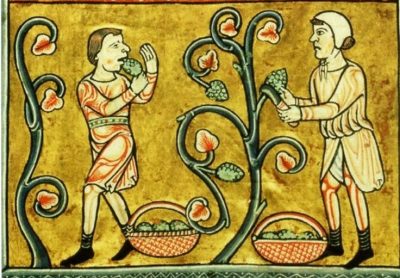 Readings:
Readings:
Ezekiel 18:25–28
Psalm 25:4–9
Philippians 2:1–11
Matthew 21:28–32
Echoing the complaint heard in last week’s readings, today’s First Reading again presents protests that God isn’t fair. Why does He punish with death one who begins in virtue but falls into iniquity, while granting life to the wicked one who turns from sin?
This is the question that Jesus takes up in the parable in today’s Gospel.
The first son represents the most heinous sinners of Jesus’ day—tax collectors and prostitutes—who by their sin at first refused to serve in the Lord’s vineyard, the kingdom. At the preaching of John the Baptist, they repented and did what was right and just. The second son represents Israel’s leaders—who said they would serve God in the vineyard but refused to believe John when he told them they must produce good fruits as evidence of their repentance (see Matthew 3:8).
Once again, this week’s readings invite us to ponder the unfathomable ways of God’s justice and mercy. He teaches His ways only to the humble, as we sing in today’s Psalm. And in the Epistle today, Paul presents Jesus as the model of that humility by which we come to know life’s true path.
Paul sings a beautiful hymn to the Incarnation. Unlike Adam, the first man, who in his pride grasped at being God, the New Adam, Jesus, Humbled himself to become a slave, obedient even unto death on the Cross (see Romans 5:12–17). In this He has shown sinners—each one of us—the way back to the Father. We can only come to God to serve in His vineyard, the Church, by having that same attitude as Christ.
This is what Israel’s leaders lacked. In their vainglory, they presumed their superiority—that they had no further need to hear God’s Word or listen to God’s servants. But this is the way to death, as God tells Ezekiel today. We are always to be emptying ourselves, seeking forgiveness for our sins and frailties, confessing on bended knee that He is Lord, to the glory of the Father.














